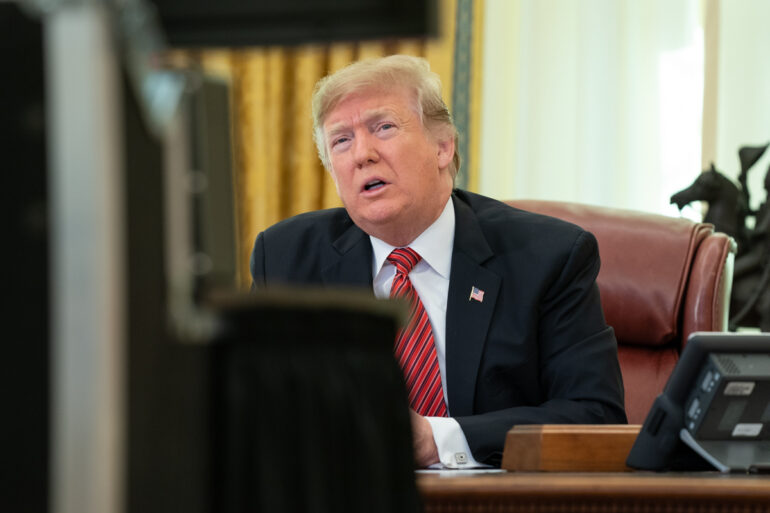President Donald J. Trump on Thursday reportedly unveiled a slate of new tariffs aimed at forcing pharmaceutical giants and manufacturers to bring production back to the United States, escalating his effort to rebuild American industry and shield it from what he called “unfair outside competition.”
“Starting October 1st, 2025, we will be imposing a 100% Tariff on any branded or patented Pharmaceutical Product, unless a Company IS BUILDING their Pharmaceutical Manufacturing Plant in America,” Mr. Trump announced on Truth Social.
The decision takes direct aim at multinational drugmakers that rely heavily on overseas plants. For decades, pharmaceutical products were largely exempt from duties, a carve-out that companies lobbied aggressively to preserve.
But Mr. Trump has long argued that national security and economic independence demand domestic production of critical goods, especially medicines.
Industry groups quickly objected. “Most innovative medicines prescribed in America are already made in America,” said Alex Schriver, a spokesman for Pharmaceutical Research and Manufacturers of America.
He warned that “tariffs risk those plans because every dollar spent on tariffs is a dollar that cannot be invested in American manufacturing or the development of future treatments and cures.”
Yet many of the largest pharmaceutical companies, including Eli Lilly, AstraZeneca, Roche Holding and GSK, have already announced new facilities in the United States. According to The Wall Street Journal, more than a dozen drugmakers this year alone pledged to spend $350 billion by the end of the decade on U.S. research, development and production.
The administration notes that generic drugs, which account for about nine in ten prescriptions filled in America, will not be affected. Earlier this summer, the White House imposed a 15 percent tariff on most pharmaceuticals imported from the European Union.
Other industries are also in the president’s sights. Heavy trucks built outside the United States will face a 25 percent duty, a move Mr. Trump said was needed “to protect our Great Heavy Truck Manufacturers from unfair outside competition.”
Freightliner, the market leader in North American heavy-duty trucks with about 40 percent of the market, assembles some vehicles in Mexico. The German-based Traton Group also produces International-brand trucks in Mexico.
“There will be more upward price pressure from tariffs, especially on the ones manufactured in Mexico,” said Kenny Vieth, a truck-market analyst in Indiana.
Home goods will not escape the tariff push. Kitchen cabinets, bathroom vanities and related imports will carry a 50 percent duty, while upholstered furniture will be taxed at 30 percent. “The reason for this is the large-scale ‘FLOODING’ of these products into the United States by other outside Countries,” Mr. Trump wrote. “It is a very unfair practice, but we must protect, for National Security and other reasons, our Manufacturing process.”
Markets reacted calmly. European indexes and U.S. futures ticked up, though shares of furniture retailers such as Wayfair and Restoration Hardware slipped, as did Daimler Truck, maker of the Freightliner brand.
Japanese and Korean drugmakers saw slight declines, but major European pharmaceutical companies that have already committed to U.S. investments were little changed.
The Supreme Court will hear arguments in November on the administration’s bid to preserve its broader global tariff program, which has faced defeats in lower courts. The outcome will determine whether Mr. Trump’s economic nationalist agenda remains a defining feature of U.S. trade policy.
[READ MORE: Justice Department Sues Six States Over Refusal to Share Voter Data]



